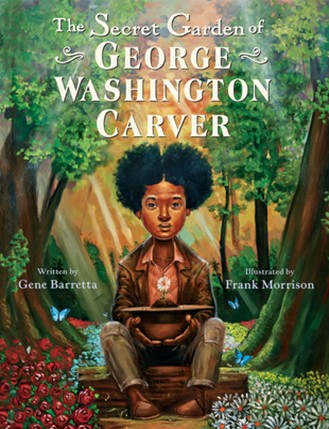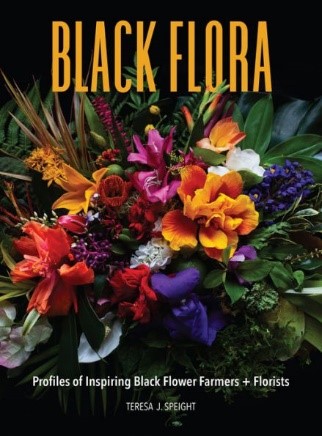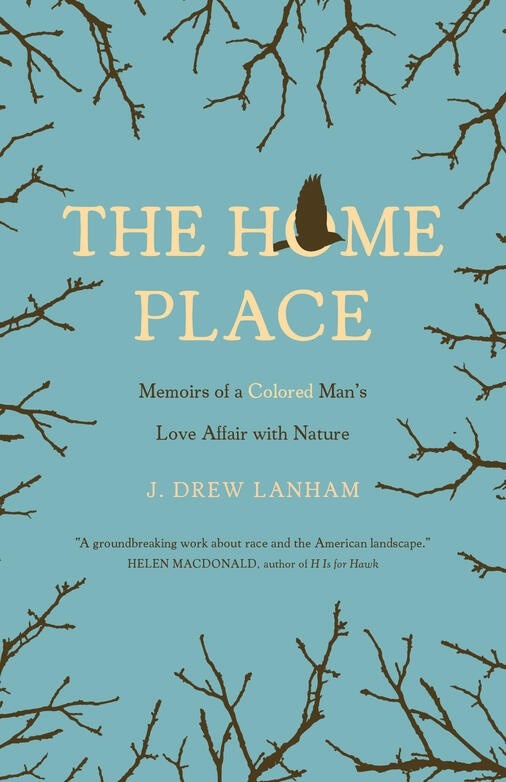We have much more to do and your continued support is needed now more than ever.
Nature-Themed Reading for Black History Month
Recommended Winter Reading List to Celebrate this Black History Month!

This Black History Month, we are uplifting Black leaders that have made a difference by sharing personal, ancestral, and contemporary connections with nature, gardening, and community education.
Progressive Nature Studies
Written by George Washington Carver
George Washington Carver is often recognized for his inventions involving new uses for the peanut and sweet potato. As an author and botanist, he was also an advocate for nature study in schools and the nature study movement which began in the late 1800s.
Learn more in Carver’s publication Progressive Nature Studies, 1897, in which he wrote:
“The study of Nature is both entertaining and instructive, and it is the only true method that leads up to a clear understanding of the great natural principles which surround every branch of business in which we may engage. Aside from this, it encourages investigation and stimulates originality.”
In the spirit of George Washington Carver’s work, here are four contemporary books to enjoy that uplift Black stories through history, science, art, and personal reflection.
The Secret Garden of George Washington Carver
Written by Gene Barretta; Illustrated by Frank Morrison
Review by Brendon Barclay
Brendon Barclay, NWF’s Manager of Education and Engagement, South Central Region, shares the following review of the book about Carver’s early life that has been an inspiration to him and his children.

“Politics, racism, and the environment are not easy subjects to address when talking to children but the opening to Barretta’s The Secret Garden of George Washington Carver captures the audience of children and adults alike. In this book, the reader is taken on a journey through the early life of Carver coalescing with young readers and reminding adults of the importance of nurturing the wonder of children in the environment. It’s amazing how loudly the legacy of this gentle giant in Black History and Science resonates with our climate today. With the Ides of March upon us in politics, racism, and the environment this story reminds us to hope again and help our neighbors. Morrison’s illustrations make you want to frame every page—the combination of author and illustrator is simply a masterpiece!” -Brendon Barclay
“We are just beginning to learn the value of the peanut,’ Carver told the congressmen. Some of them laughed. One man made a racist remark. As a Black man speaking to a room of all-white representatives, Carver was not among friends…Carver had only been given 10 minutes to speak. He gave the audience 10 minutes they would never forget…When his time was up they were impressed. The chairman encouraged him to continue. ‘Go ahead brother, your time is unlimited.’ Carver spoke for over an hour.”
Gene Barretta, The Secret Garden of George Washington Carver
Soil: The Story of a Black Mother’s Garden
Written By Camille T. Dungy

Camille Dungy has been working on reclaiming her yard to become natural habitat space for the past few years. Her lessons learned as a gardener connect to a larger story of Black experience in America and memories of childhood. As noted in the publisher description, Dungy’s book is for anyone looking to gain a better understanding of intersectional environmentalism.
“Whether a plot in a yard or pots in a window, every politically engaged person should have a garden. By politically engaged, I mean everyone with a vested interest in the direction the people on this planet take in relationship to others. We should all take some time to plant life in the soil. Even when such planting isn’t easy.”
Camille T. Dungy, Soil: The Story of a Black Mother’s Garden
Black Flora: Profiles of Inspiring Black Flower Farmers + Florists
Written by Teresa J. Speight

Teresa J. Speight is a mother, grandmother, steward of our land, garden writer, history lover, and Certified Wildlife Habitat® owner and ambassador. Her book not only lists amazing Black entrepreneurs that provide beauty, design, and sustainably floral resources, she also lifts up a community that has a long tradition in this space and inspires younger generations with their success and dynamism. This book also includes a broader profile on another Black leader in the slow flower movement and a Certified Wildlife Habitat® owner, Dee Hall, featured in National Wildlife Magazine last spring.
“…Younger generations of Black plant-lovers are seeking inspiring examples of successful floral artists and entrepreneurs. When they see their potential—through representation of people who look like them in farming, floristry—possibilities for the future enable their dreams.”
Teresa J. Speight
The Home Place: Memoirs of a Colored Man’s Love Affair with Nature
Written by J. Drew Lanham

Author, poet, birder and wildlife biologist, J. Drew Lanham explores the story of his love of nature and how its impacted by being a Black man in a predominately white space. The memoir manages to depict the full range of human emotion, from anger to humor, to reflect on the idea of belonging in nature spaces. Lanham was awarded a fellowship in the MacArthur Fellows 2022 Program for his work “combining conservation science with personal, historical, and cultural narratives of nature.”
“The wild things and places belong to all of us. So while I can’t fix the bigger problems of race in the United States — can’t suggest a means by which I, and others like me, will always feel safe — I can prescribe a solution in my own small corner. Get more people of color “out there.” Turn oddities into commonplace. The presence of more black birders, wildlife biologists, hunters, hikers, and fisher-folk will say to others that we, too, appreciate the warble of a summer tanager, the incredible instincts of a whitetail buck, and the sound of wind in the tall pines. Our responsibility is to pass something on to those coming after. As young people of color reconnect with what so many of their ancestors knew — that our connections to the land run deep, like the taproots of mighty oaks; that the land renews and sustains us — maybe things will begin to change.”
J. Drew Lanham, The Home Place: Memoirs of a Colored Man’s Love Affair with Nature
Let’s Get Reading
These books offer hope and thoughtful reflection for the role Black leaders play in environmentalism, horticulture, and gardening. Reading and sharing these books honors their legacies in this space.
Learn More:
Five Actionable Ways Municipalities Can Support Black, Latinx and Indigenous Environmentalists
Prescribed Fire Field Day Highlights Healthy Forest Management & Celebrates Black History Month






















